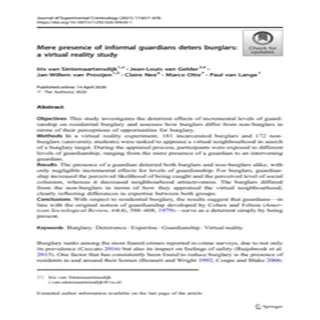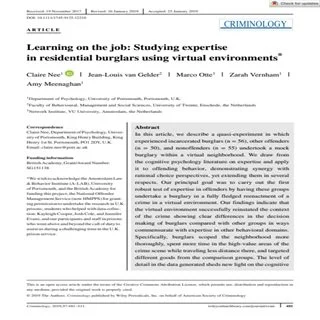By Eric Halford
Crime linkage is a systematic way of assessing behavioural or physical characteristics of crimes and considering the likelihood they are linked to the same ofender. This study builds on research in this area by replicating existing studies with a new type of burglar known as optimal foragers, who are ofenders whose target selection is conducted in a similar fashion to foraging animals. Using crimes identifed by police analysts as being committed by foragers this study examines their crime scene behaviour to assess the level of predictive accuracy for linking crimes based on their ofending characteristics. Results support previous studies on randomly selected burglary ofence data by identifying inter-crime distance as the highest linking indicator, followed by target selection, entry behaviour, property stolen and ofender crime scene behaviour. Results discuss distinctions between this study and previous research fndings, outlining the potential that foraging domestic burglary ofenders display distinct behaviours to other forms of ofender (random/marauder/commuter).
Journal of Police and Criminal Psychology (2023) 38:127–140





